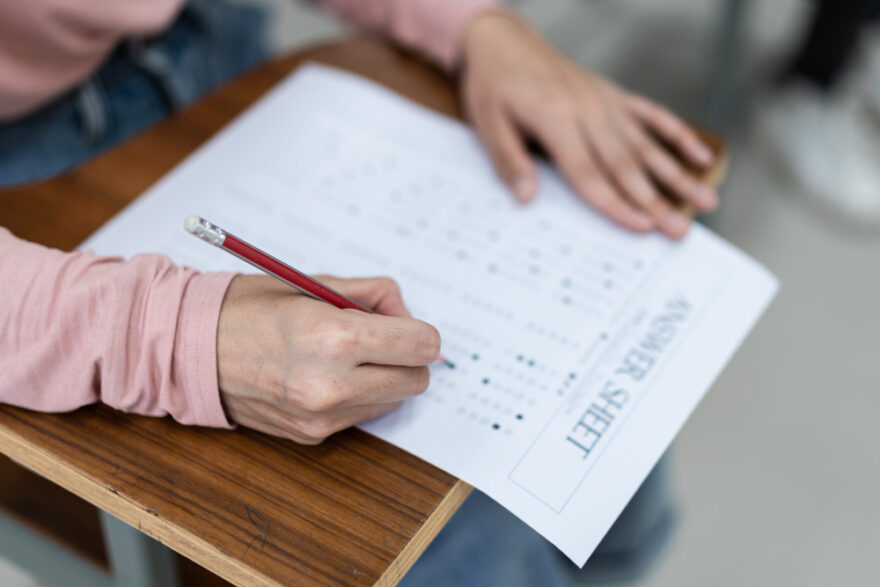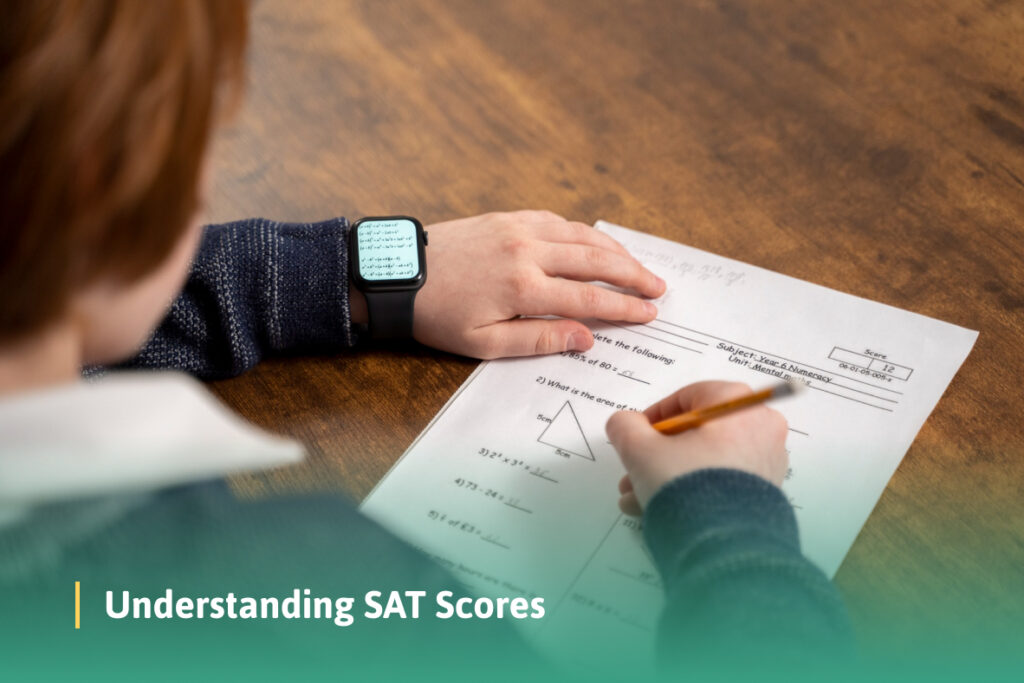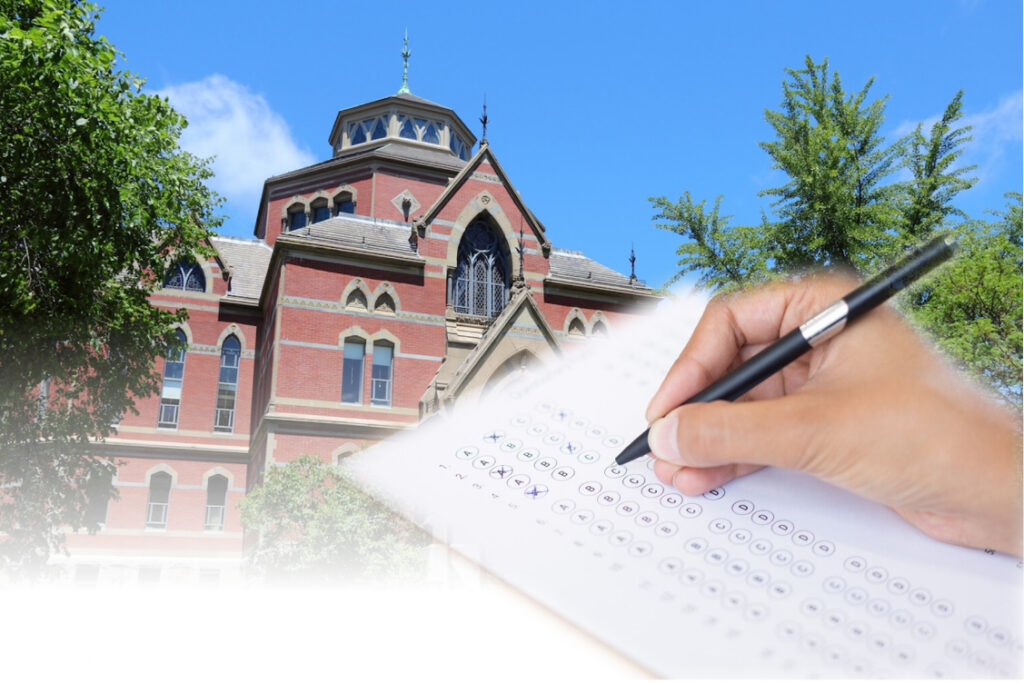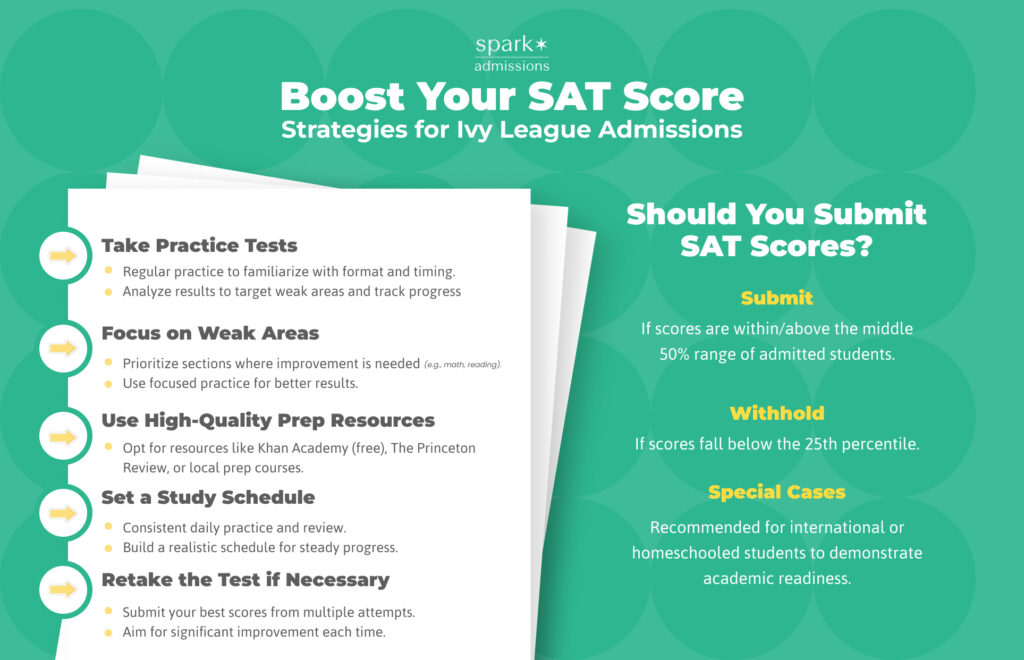- Blog
- > Ivy League Admissions
What Is a Good SAT Score for Ivy League Admissions?
- Dr. Rachel Rubin
- | January 30, 2025

The Ivy League represents the pinnacle of academic achievement and prestige in higher education. Comprising eight elite schools—Brown, Columbia, Cornell, Dartmouth, Harvard, Princeton, the University of Pennsylvania, and Yale—these institutions attract the brightest minds from across the globe. As such, one of the most critical components of an application to any of these impressive universities is your SAT score. But what exactly constitutes a “good” SAT score for these highly competitive schools?
In this guide, we’ll answer that question, explore competitive score ranges, and provide tips for strengthening your application beyond standardized testing.

Understanding SAT Scores and Ivy League Expectations
The SAT is scored on a scale of 400 to 1600, combining two sections: Evidence-Based Reading and Writing (EBRW) and Math. For Ivy League schools, where the admissions process is highly selective, applicants typically need scores in the upper percentiles on both sections to remain competitive.
What is a good SAT score for Ivy League admissions? A “good” SAT score for Ivy League schools often falls between 1500 and 1600. While each institution has its unique benchmarks, most successful applicants will have scores that place them in the top 1% to 2% of test-takers nationwide.
Average SAT Scores for Ivy League Schools
While specific requirements may vary, the following test scores represent the middle 50% of SAT scores for Ivy League admitted students:
- Harvard University: 1480-1580
- Yale University: 1470-1580
- Princeton University: 1460-1570
- Columbia University: 1450-1570
- University of Pennsylvania: 1460-1570
- Brown University: 1440-1570
- Dartmouth College: 1440-1560
- Cornell University: 1430-1550
These test scores reflect the scores of admitted students in the middle 50%, meaning 25% scored below this range and 25% scored above.

Competitive SAT Score Ranges for Ivy League Schools
If your goal is to earn a strong SAT score, you should aim for the higher end of the ranges listed above. For instance, a score above 1550 will make you competitive at any Ivy League school. Test scores between 1500 and 1550 keep you within the plausible applicant pool but may require other outstanding aspects of your application to stand out.
On the other hand, test scores below 1450 are generally less competitive and may need significant compensatory factors, such as exceptional extracurricular achievements or unique personal stories.
The Role of SAT Scores in Holistic Admissions
It’s important to note that Ivy League schools practice holistic admissions, meaning that SAT test scores are only one component of your application. While a high score can boost your chances, admissions committees also evaluate:
- High School GPA: A rigorous academic record with a high GPA is essential.
- Extracurricular Activities: Leadership roles, achievements, and depth of involvement are highly valued.
- Essays: Compelling personal essays provide insight into your character and motivations.
- Letters of Recommendation: Strong endorsements from teachers and counselors can make a significant impact.
- Interviews: For some schools, alumni interviews can further distinguish you.
This holistic approach at each Ivy League school means that even if your standardized test scores are slightly below the average range, other strengths in your application can compensate to help you get into your preferred Ivy League school.

How to Improve Your SAT Score
If your current SAT score is below the target range for an Ivy League school, consider these strategies to improve your SAT score and align better with the average scores for students admitted to your top-choice school:
Take Practice Tests
Regularly taking full-length practice tests helps familiarize you with the exam format and timing. Review your SAT score results to identify areas of concern and track your progress.
Focus on Weak Areas
Target your studying on the sections where you struggle most. Whether it’s improving your math problem-solving skills or enhancing reading comprehension, focused practice yields better results.
Use High-Quality Prep Resources
Invest in reputable SAT prep books, online courses, or tutoring services to garner an impressive SAT score. Some popular resources include Khan Academy’s free SAT prep program and The Princeton Review’s targeted study guides. Look for prep courses offered in your community to help you achieve admittance to Ivy League institutions by earning an above-average SAT score.
Set a Study Schedule
Consistency is key to improving your SAT score. Develop a realistic study schedule that includes daily practice and regular review sessions to get up to speed with admitted students at your target school.
Retake the Test if Necessary
Most Ivy League schools allow SAT score submission from multiple test attempts. Use this to your advantage by retaking the SAT if you’re confident you can achieve a higher score on your second (or third) attempt.
Following these study tips will increase your overall SAT score and help you get into top schools. Ivy League colleges have high college admissions standards, but you can reach your target score with some hard work and dedication.
Should You Submit SAT Scores?
With some Ivy League schools still maintaining their test-optional policies, you may wonder if you should submit your SAT scores. Here’s how to decide:
- Submit If Your SAT Scores Are Competitive: If your SAT score falls within or above the school’s middle 50% range of admitted students’ SAT scores, submitting it can enhance your application.
- Withhold if Your Scores Are Low: If your SAT score is below the 25th percentile, it might be better to rely on other aspects of your application instead of submitting below-average SAT scores.
- International or Homeschooled Students: SAT scores can be especially beneficial for these students as a means of demonstrating academic readiness and proficiency.
A high SAT score above the 75th percentile will really help you stand out. Also, if you are applying to an Ivy League with STEM in mind, an above-average SAT math score will look appealing to college admissions officers.
Balancing SAT Scores with Other Application Components
While standardized testing is important, remember that Ivy League admissions officers look at the complete picture. You are more than just a good score. To strengthen your application, focus on excelling in the following areas to become one of the admitted students:
Strong Academic Performance
A high GPA, particularly in challenging courses such as AP, IB, or honors classes, signals to admissions officers that you can handle rigorous coursework at the collegiate level. In addition, a strong academic record will only contribute to a good SAT score.
Leadership and Extracurricular Impact
Ivy League schools value depth over breadth. Highlight your leadership roles and meaningful contributions to your extracurricular activities. For example, founding a community organization or leading a successful project in a STEM club demonstrates initiative and impact.
Personal Essays
Use your essays to share your unique story, values, and goals. Explain how your experiences have shaped you and why you’re passionate about attending a particular Ivy League institution. Authenticity and clarity are key. Your essay can be the deciding factor that helps you stand out, even if your standardized test scores are only average, and secure admission to your dream university.
Letters of Recommendation
Choose recommenders who know you well and can speak to your academic abilities, character, and potential. Strong recommendation letters often come from teachers who have witnessed your growth and dedication firsthand. The admissions committee will forget your SAT score when they read a rave review regarding your ability and involvement in your high school.
Common Questions About SAT Scores and Ivy League Admissions
Here are some common questions about standardized testing and overcoming average SAT scores.
What Is the Lowest SAT Score Accepted by Ivy League Schools?
While most admitted students have scores above 1450, some exceptions exist. Recruited athletes, legacy students, or those with unique talents may gain admission with below-average SAT scores.
Can a Perfect SAT Score Guarantee Admission?
No. Even a perfect 1600 does not guarantee admission to Ivy League schools. Admissions committees of Ivy League Universities consider numerous factors, including extracurricular achievements, essays, and recommendations.
How Many Times Should I Take the SAT?
Take the SAT as many times as needed to achieve your target Ivy League SAT scores, but limit retakes to three or four attempts. Excessive retakes may signal a lack of preparation.
Increase Ivy League SAT Scores by Working with Spark Admissions
Achieving a good SAT score for Ivy League admissions requires dedication, preparation, and strategy. A score in the 1500-1600 range places you among the most competitive applicants, but remember that your SAT score is just one piece of the puzzle. To maximize your chances of admission to Ivy League universities, focus on excelling academically, engaging deeply in extracurricular activities, writing compelling essays, and securing strong recommendation letters.
Spark Admissions is dedicated to helping you achieve your target score. By balancing a competitive SAT score with a standout application, you’ll position yourself as a strong candidate for one of the world’s most prestigious Ivy League Universities.


